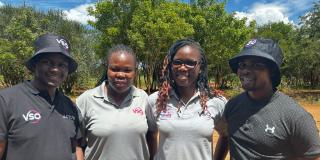
"My name is Felix Muendo, I’m 30 years old and I’m the Sexual and Reproductive Health Advisor for the ACTIVE project in Makueni County, Kenya.
Joining VSO has been the best thing that I’ve ever done in my life. It’s been a journey.
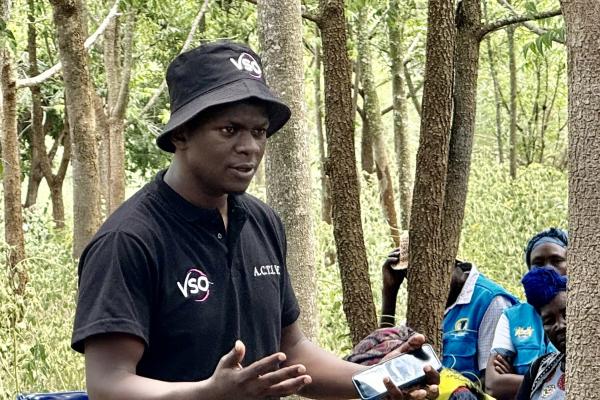
I first encountered VSO when it was running the International Citizen Service (ICS) programme, and their work deeply moved me. I approached the project administrator, who introduced me to VSO's youth programming. I soon joined as a volunteer supporting the ICS initiatives, filling the gap between cycles in 2019.
However, when COVID hit, our activities were significantly limited. Despite this, I continued my involvement with VSO and began supporting their online work alongside another volunteer.
After the pandemic ended, we came together again to volunteer in Makueni. I got to do a lot of research work in sexual and reproductive health education and developed a deep interest in it.
I started interacting with healthcare providers and gained a better understanding of sexual and reproductive services. It's a concept that few people would want to venture into.
Looking at the issues of reproductive health as a man is quite contentious, which is why I wanted to do this. It involves advocacy work as advocacy is a way of giving community power. I help them to look at how they can claim their rights and hold service providers to account.
When you're doing advocacy around health, it is like giving power to the community to be able to understand what their rights are and how they can ask for their rights to be considered.
What changes have you observed because of the project?
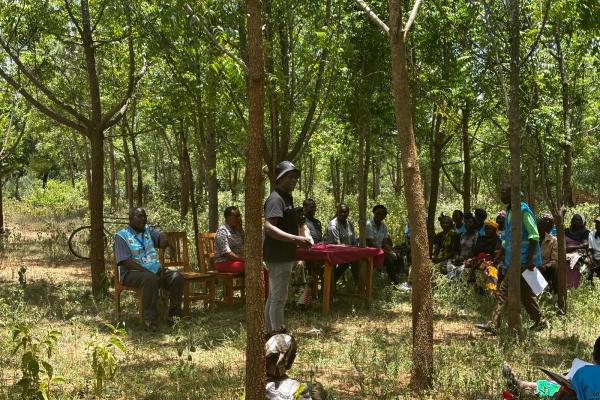
I’ve been volunteering on the ACTIVE project for almost a year and can say that it has transformed the lives of communities, and especially for their most marginalised members.
Initially young people were not really accessing health services but, following our trainings and advocacy efforts, more young people are now accessing services.
Service providers are also now looking into the issue of inclusion. We are considering the best practices to include people with disabilities.
Key stakeholders now consider the need to include the marginalised communities. When it comes to programme and budget planning, it has now become a norm to consider whether all are included.
We have seen many people champion for reproductive health issues and for them to be included in the budgets. We have also seen an increase in the budgetary allocation for county funds
We’ve also developed school health clubs so young people can truly understand their rights and their reproductive health needs, and how they can address them through their parents, teachers and even other community members.
How has the community responded?
When we conduct trainings, most of our participants are women’s collectives because we are so keen on empowering women. We talk about sexual and reproductive health, but also about sexual and gender-based violence. It has been on the rise in Makueni county, but we have seen more women coming out to ask for their rights and to say no to gender-based violence.
There was one incident of a schoolgirl who was abused sexually by one of the school's board members with staff members knowledge. The women demonstrated on the streets and the matter was taken up by the whole community.
As a result, members of the county assembly and others including the media and corporates are now following up. There are many more examples like this.
What’s the highlight of your time so far?
What keeps me going is the satisfaction with our work. When you have the community’s engagement, you feel like you've achieved a goal – I have saved a life, I have talked to someone who was in need. They have seen hope, and they can now build on that.
When I see the community getting services that are respectable and equitable, with service providers giving them time to unpack their challenges and help solve their problems, it helps me keep going.
Sometimes healthcare workers can be challenging to work with, but after you've trained them and created that rapport, you can refer young people to someone who can give them a service that is satisfying.
What challenges have you had to overcome?
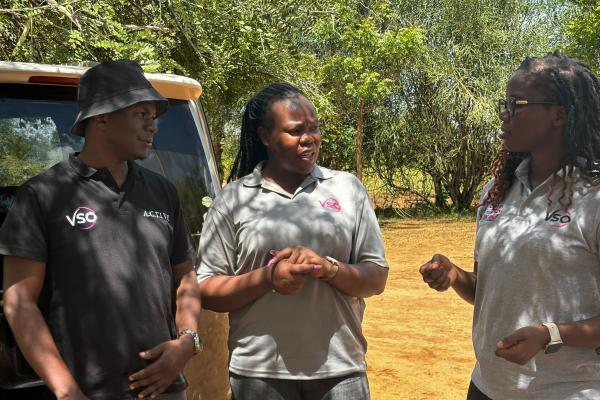
Working with professionals in the health sector is sometimes hard because there are a lot of protocols. We also have over 100 facilities in Makueni, so reaching out to all those facilities for training is a large undertaking.
Another challenge is our communities’ health-seeking behaviours, especially for men. Telling men to go to seek these services sometimes is difficult. The community attitude is that ‘a man should be a man’ and getting men to go for a screening and continuing to raise awareness for how they can seek resources is a challenge.
The other challenge is our judicial system. So many cases of sexual and gender-based violence face a backlash because of the judicial system and there's a lot of corruption in the cases. Most of our children don't get justice – that is a challenge we are still working on by sensitising judges in the courts to be responsive to gender and student issues, especially in cases of gender-based violence.
Who impacted you the most during your volunteer placement?
There are so many young people that have had their lives impacted. As a mentor, young people look to you and want to understand what you are doing and how they can be better – they then can go on to mentor others.
There is a youth group that we grew from VSO, it's called Youth for Sustainable Development. It started with seven of us, but now it's county-wide, helping everyone to understand sexual and reproductive health rights. We are being supported by VSO through the Make Way project to implement activities.
As an advisor, I am the point person to help train other community members. I'm also mentoring a group of young people with disabilities, looking at how to access their reproductive health rights.
Sometimes this area can be quite contentious, but when they say ‘I was mentored by VSO on my rights’, it helps navigate the challenging dynamics and get clarity and accountability.
What makes your experience on the ACTIVE project different?
VSO's volunteering for development model is unique because it focuses on the community. As a volunteer, you are the bridge between the community and the government or service provider.
You are in the middle. You can understand the issues of the communities, how to engage with different stakeholders, and how to bring them both together.
How did this experience impact you personally and professionally?
Working with the community was fascinating. Our communities are so different and understanding how to work with them is something that no school teaches.
Understanding how to do advocacy work without brushing shoulders is very fruitful. You can see the outcomes in good action plans, with the follow-up to make things happen.
It's one of the things that I've appreciated the most. I feel like a different person because when you learn, you start to understand how to keep an open mind as any decision-making needs an open mind.
What would you tell anyone considering volunteering?
I would tell them to go for it, because volunteering is like an expression of your skills, giving them time to grow stronger and do better.
When you volunteer, you're not just a participant, you're a decision-maker with the power to shape someone else's life. This open space is your canvas, ready for you to paint your unique contribution. It's a chance to learn new skills and discover your potential.
How do you think VSO volunteers achieve impact?
I think volunteering is transformational to the community. You represent the community that you were born in. You have a skill that you can share and can use them to transform that community with VSO’s support.
Where you might not have the skill, VSO will teach you and provide pathways so you can pass it on to others
What is so special about volunteering?
Volunteering is different. When you are employed, you are doing it for the job, but when you’re a volunteer, you're doing it from the heart. You already know that you are a volunteer, and you are doing this for the community.
What is next for you?
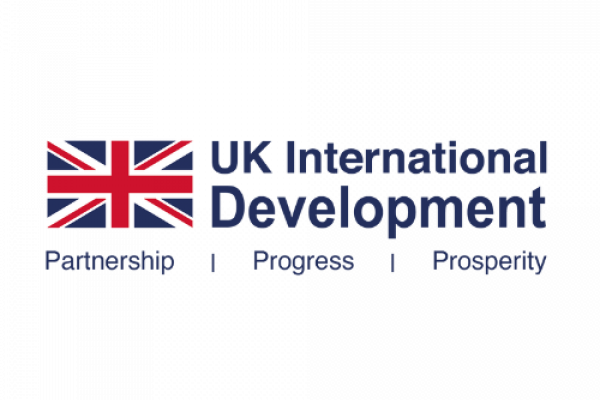
I have been a champion of young people in Makueni, and my next step is to build an organisation supporting young people to be free and enjoy their rights."
Active Citizenship Through Inclusive Volunteering and Empowerment (ACTIVE)
The three-year ACTIVE programme, funded by UK Aid, is supporting the development of active citizenship across the Global South so the world’s most marginalised people can lead their own development, claim their rights to better public services, and hold people in power to account.
Read more

A ripple of change: how VSO volunteers are transforming communities
Every act of volunteering begins with a choice — a decision to act out of a desire to make a difference. Across the world, VSO volunteers are proving that one spark of action can ignite something much bigger.

The two volunteers empowering girls and young women in Mozambique
Nelma and Carmirene and are two volunteers working on VSO's EAGLE project in Mozambique. For Nelma and Carmirene, education is not just about school, it is about meeting people where they are and using the right tools to challenging harmful norms. Here are their stories.
Opening doors to safety, education, and a brighter future
For girls in Karamoja, the poorest region in Uganda, being forced into early motherhood is all too common. This Christmas, you can open the doors to Safety, Education, and a Brighter Future.
